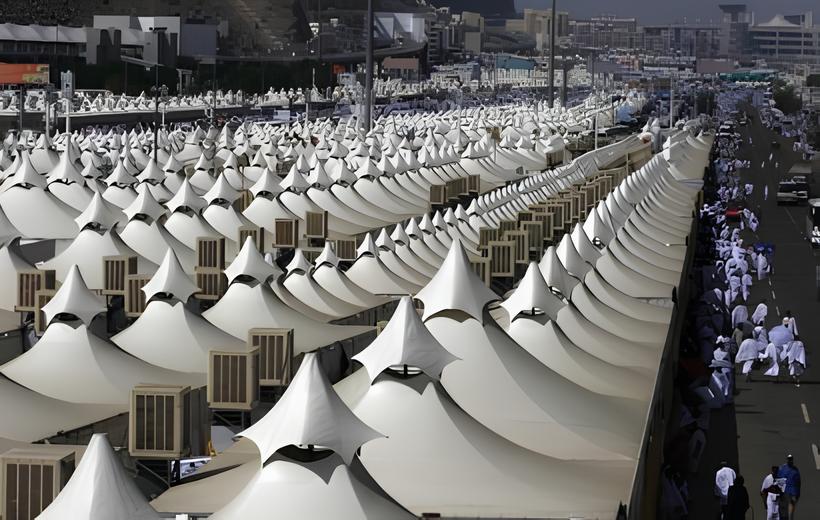The days of Tashreeq are the days following the Eid day. These are the appointed days Allah mentioned in chapter Al-Baqarah:
Celebrate the praises of Allah during the Appointed Days. But if anyone hastens to leave in two days, there is no blame on him, and if anyone stays on, there is no blame on him, if his aim is to do right. Then fear Allah, and know that ye will surely be gathered unto Him. (2:203)
The strongest opinion on why they are called Ayyam-ut-tashreeq or the days of Tashreeq is because prior to the invention of the refrigeration system, the pilgrims used to slice the meat they acquired from the udhiyah, season it with salt and then let it dry in the sun in an early and traditional style of food preservation.
The dehydrating of the meat allowed the pilgrims to preserve it and carry it with them on their long journey back from wherever they came.
This process in itself is called tashreeq, and it was derived from the Arabic word which means sunrise or sunshine. The process entails the exposure of the meat to the sun for a long time.
And although most of the pilgrims don’t practice this anymore, if you look carefully in the camps of Mina, perhaps you will see some people still practice the tradition, and you might see the meat “jerky” already hung on ropes and on different sides of their tents.
Celebration and Worship
These days are considered days of celebration and worship. It is not recommended for the pilgrims to fast on these days, rather they should enjoy the celebration of the Eid by feasting, eating and drinking. The Prophet said:
The days of Tashreeq are days of eating and drinking (i.e. feasting). (Muslim)
The wisdom behind these days is to allow the pilgrims to celebrate the season and encourage them to eat from the meat they have offered for the sake of Allah.
The pilgrims in the past used to come from far distances, and meat for them was a very precious meal. Now that they have plenty of it, they were given the incentive and encouragement to consume it during the days of Eid without any feeling of guilt.
It was normal during these days to walk around the camps of Mina seeing smoke all over the place and smelling nothing but barbecue. Today things are different, and pre-catered meals are becoming the standard. Allah said:
The sacrificial camels We have made for you as among the symbols from Allah: in them is (much) good for you: then pronounce the name of Allah over them as they line up (for sacrifice): when they are down on their sides (after slaughter), eat you thereof, and feed such as (beg not but) live in contentment, and such as beg with due humility: thus have We made animals subject to you, that you may be grateful. (22:36)
Rulings for Pilgrims
It is only permissible to fast these days for the pilgrims if they were unable to offer the sacrificial animal, and therefore these pilgrims become obligated to fast three days during the Hajj and seven when they arrive home. Allah said:
…and when ye are in peaceful conditions (again), if any one wishes to continue the ‘umrah on to the Hajj, he must make an offering, such as he can afford, but if he cannot afford it, he should fast three days during the Hajj and seven days on his return, making ten days in all… (2:196)
The days of Tashreeq are minimum of two: the 11th and the 12th; the 13th is an optional day for those who desire to stay longer, as Allah mentioned in the verse previously quoted:
But if any one hastens to leave in two days, there is no blame on him, and if any one stays on, there is no blame on him, if his aim is to do right. (2:203)
SOURCE: https://aboutislam.net/reading-islam/understanding-islam/special-days-tashreeq/
Post Views: 267


